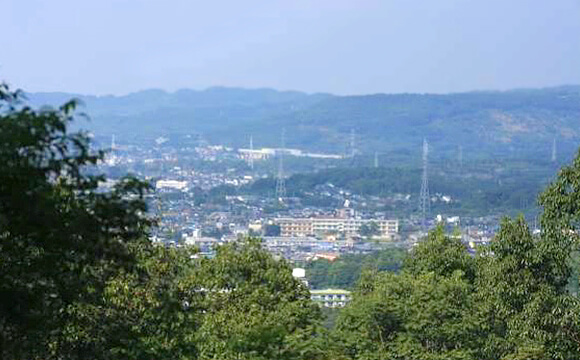The Mitsui Chemicals Group aims to minimize the negative impact on the global environment and ecosystems from the products it manufactures and sells throughout their lifecycles.
The manufacture of chemical products has the potential for impacting biodiversity in the air, water, and soil through GHG emissions when using energy (electricity and thermal), the consumption of water resources in heating, cooling, and cleaning processes, and water-polluting effluent. In addition, the release and decomposition of harmful chemical substances at the manufacture, use, and disposal stages of chemical product lifecycles can reduce the number of species living in those environments.
To prevent any loss of biodiversity, the Mitsui Chemicals Group is working on the following initiatives aimed at mitigating climate change, recycling of resources, managing chemical substances and reducing environmentally harmful substances to contribute to realizing a cohesive society in harmony with the global environment.
Environmental Protection
Biodiversity
Basic Approach to Biodiversity Conservation
- We conduct our business activities in gratitude for the blessings of nature and biodiversity and recognize that environmental preservation is a globally important issue.
- We contribute broadly to society by encouraging biodiversity conservation through the supply of environmentally friendly materials, products, and services.
- We will comply with international biodiversity agreements.
- We strive to conserve biodiversity by cooperating with relevant parties in Japan and abroad and within and outside the company and taking into account its effect in the supply chain.
- To conserve biodiversity, we will promote employee social contribution activities that have our stakeholders trust.
Biodiversity Risk Assessment
Believing that reducing environmental burdens throughout the Mitsui Chemicals Group’s production and business activities helps preserve biodiversity, we undertake initiatives that include managing chemical substances, reducing GHG emissions, and managing water resources.
As a chemical company whose operations are particularly dependent on natural capital such as raw materials, water resources, and land, we believe it is necessary to assess our impacts on natural capital and biodiversity, take steps to mitigate negative effects, and contribute to a nature-positive society.
To date, we have conducted surveys related to natural conservation areas—including World Natural Heritage sites, IUCN categories I, II, III, and Ramsar Convention wetlands—at our Group production sites in FY2017, and biodiversity risk assessments using the WWF Biodiversity Risk Filter (BRF) in FY2023. Beginning in fiscal 2024, we have expanded the scope of our assessment to include the value chain and stakeholders, and have initiated consideration based on the LEAP approach* recommended by the Task Force on Nature-related Financial Disclosures (TNFD).
In the Locate phase (L1 and L2), we assess ecosystem-related risks and dependencies in both upstream and downstream segments of the value chain, as well as in our direct operations, for each business portfolio. This assessment is conducted using tools such as ENCORE. In the chemical sector, we have identified that elements such as water resources (including water usage and water quality) and pollution (including pollutant emissions) are of high importance. Going forward, we will continue to conduct further analyses and evaluations to identify sensitive locations of particular relevance to our company.
Evaluation Conducted and Summary of Results to Date
| Items | Tools | Scope | Year of implementation | Summary of Results |
|---|---|---|---|---|
| Nature conservation areas | IBAT | Direct operations (Primary manufacturing sites) | 2017 | There are no nature conservation areas in the vicinity of our sites. |
| Biodiversity Risk | WWF BRF | Direct Operations (Sector) | 2023 | Significant Impact: Pollution Significant Dependencies: Landslides, Tropical Cyclones, etc. |
| Biodiversity Risk | ENCORE SBTN | Value chain upstream and downstream Direct operations (sectors related to the business portfolio) | 2024 | Significant impacts and dependencies: - Water resources (water usage and water quality) - Pollution (emission of pollutants) |
* LEAP Approach:
An integrated approach for companies to evaluate nature-related issues in preparation for TNFD disclosure, consisting of four steps: Locate, Evaluate, Assess, and Prepare.
Contributions through Products and Services
The Mitsui Chemicals Group is developing products and services that help reduce environmental burdens. Formulating Blue Value™ as a means for displaying environmental contribution value, products that help "Reducing CO2", "Conserving resources", and "Coexisting with nature" are designated as Blue Value™ products.
Setting Blue Value™ products sales revenue ratio as a KPI in VISION 2030, we aim to expand product groups that help conserve biodiversity.
In addition, the Group, which has been vigorously promoting a shift to business with a social challenge perspective, also focuses its attention on biodiversity related social challenges and aims to provide products and services that contribute to solving such challenges.
TOPICS: Product development aimed at marine life conservation
Mitsui Chemicals has developed NAGORI™*, a product that contains up to 75% of mineral components found in seawater.
This product was born from an employee’s idea. Focusing on the fact that the desalination technology—a solution for the social challenge of water shortages—is a trade-off with another new challenge, coral extinction caused by concentrated brine produced as a by-product in seawater desalination, the employee came up with an idea of developing products using rich minerals in the concentrated brine as the main raw material.
NAGORI™ received high praise from members of the judging committee for its innovative chemical technology utilized to tackle the environmental challenge, earning selection into the Good Design Best 100 as one of the top 100 winners of the 2018 award.
*NAGORI™:
An innovative material created from seawater minerals. Mitsui Chemicals has used its state-of-the-art compounding technology to grant material thermal conductivity similar to that of ceramics along with a weighty feel and ease of mass production.
In the future, Mitsui Chemicals intends to take the concentrated brine produced as a by-product in seawater desalination and use the raw materials from this for NAGORI™. As a chemical company, we are looking at how to create tangible solutions in pursuit of environmental friendliness, Sustainable Development Goals (SDGs) and how as a society we should approach true sustainability.
 Beer tumbler made from NAGORI™
Beer tumbler made from NAGORI™
Contributions through the Supply Chain
In procuring our raw materials, we are making efforts to select materials and suppliers that will result in a lower environmental impact in line with our Purchasing Policy. As we include“preservation of biodiversity” to the Sustainable Procurement Guidelines, we request our suppliers to support the preservation of biodiversity. In logistics, we work to reduce environmental impact mainly by undertaking modal shifts and shared logistics. We provide product safety information in an effort to help customers handle products appropriately and minimize environmental impacts.
Participation in Initiatives
We support the aims of the Taskforce on Nature-related Financial Disclosures (TNFD), an international initiative launched in June 2021, and participate in the TNFD Forum.
We also support the Declaration of Biodiversity by the Japan Business Federation (Keidanren) and participate in the Japan Business and Biodiversity Partnership. The policy and initiatives of Mitsui Chemicals in this area has been introduced in Initiative on the Declaration of Biodiversity by Keidanren.
Social Initiatives That Support the Conservation of Biodiversity
The Mitsui Chemicals Group undertakes environmental creation initiatives to conserve biodiversity at its business sites.
*Major activities are shown here.
Preservation Activities at Omuta Works
At the Omuta Works (Fukuoka Prefecture), Mitsui Chemicals has a protected forest that spans approximately 5.4 hectares and engages in ongoing activities to preserve this area. In 2009, we cooperated on a survey of the natural environment in the forest around our property (the southern side of Mt. Takatori) at the request of Omuta City, which considers the preservation of the natural environment an important issue. The survey conducted by Omuta City Natural Environment Survey Association examined rare plants and species of living organisms in areas managed by Omuta Works, and presented its findings in the Omuta City Natural Environment Survey Results Report.
Rare Wildlife Found in Survey (example)
| Plants | Serissa japonica, tree of a thousand stars |
|---|---|
| Selaginella moellendorffii | |
| Amphibians | Japanese brown frog |
| Insects | Cydnidae, Parastrachia japonensis |

Donations to Environmental Conservation Organizations
Mitsui Chemicals employees have been annually donating to the Japan Environmental Action Network (JEAN) — an NGO that engages in ocean and river environmental preservation activities—through the One-Coin Club since fiscal 2015.
